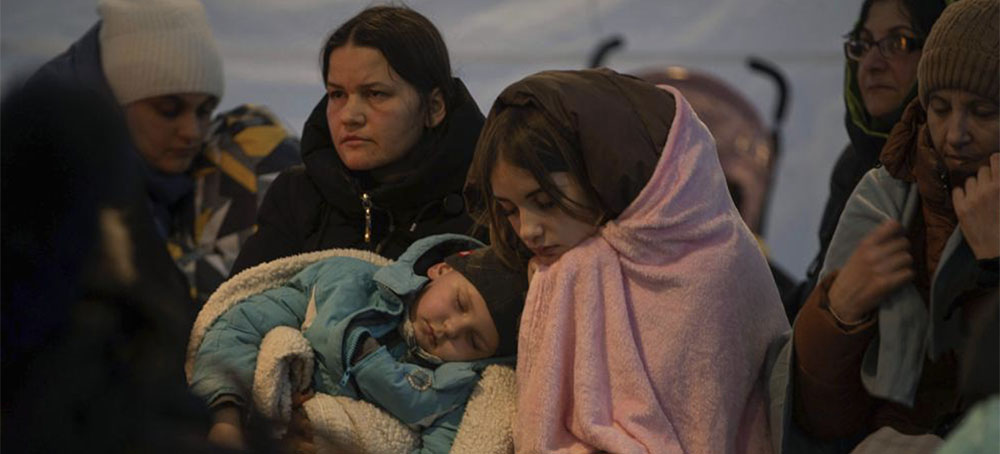Live on the homepage now!
Reader Supported News
What questions are we not asking?
In retrospect, it seems inevitable — the culmination of rising tensions in the Pacific stretching back years, if not decades. But at the time, it was almost completely “off the radar” (granted radar hadn’t fully been invented yet). And that collective lack of imagination about what was possible can be measured in the level of preparedness — or specifically the lack thereof — for U.S. forces in Honolulu.
I have lived long enough to know that while we must learn from our past, we must also recognize the limitations of historical analogies. No two times are exactly alike. No two crises overlap completely. I don’t want to be “yesterday’s man” harping about how this is a replay of World War II. Even if there are similarities, there are also very big differences.
For the sake of the discussion here, however, I want to focus on the notion of surprise. And here is where I have both worry and hope. As with Pearl Harbor, what are we not anticipating that we should be? What could change the global calculus in an instant, for the worse or the better? Where are we not seeing important signals amidst the noise of a very turbulent time?
I raise these questions not in an effort to increase our collective anxiety. These are difficult enough times without trying to layer upon ourselves the specter of new horrors as yet unrealized. Already the events in Europe and the unhinged actions of Putin lead the mind into frightening what-ifs, such as invasions of NATO countries or even the use of nuclear weapons.
What more, you may ask, should we be imagining?
The answer to that question is: I don’t know. But that’s the point.
I worry that another country might decide to cause mischief with the world preoccupied in Europe. China? North Korea? Iran? Other actors in the Middle East? There are also reasons why each of these nations would not choose to act. Surprises come in many forms, and I think the more despotic regimes of the world have been caught off guard in their own right by how swift and unified (in terms of both economic sanctions and arms support) the response has been to Russia. So in this way, the war in Europe might actually hold back the ambitions of some of our other adversaries. But we should also prepare ourselves for onslaughts that might be more novel forms of warfare, like a sustained or targeted cyber attack.
Sadly I have seen enough battlefields to know the predictability of unpredictability. This can happen at the level of a platoon out on a patrol or generals plotting sweeping strategies over an array of maps. The most effective warriors know that surprise lurks everywhere.
My hope and expectation is that the national security and diplomatic teams around President Biden are preparing for a range of possible outcomes. And this must include the grim reality that Ukraine might succumb to Russian aggression, even though most of the world desperately cheers on the fierce and courageous resistance. The purpose of walking through exercises of anticipation is not just to prepare for the inevitable. It is to make the pivots necessary to increase the likelihood of more positive outcomes.
The reason why you prepare for the worst, is that it sometimes can prevent the worst from happening.
I worry, as I am sure many of you do, about where this all can go. Putin has put everything on the line. He has opted for major war, in ways that once again surprised many. But looking back, we can see round after round of his aggressive, destructive, and murderous behavior go largely unchallenged. Putin paid little or no price. So should we really be surprised by how this latest phase has transpired?
One can only imagine the tragic unmooring for the Ukrainians. This tweet from a few days ago caught our eye. It summarizes, in an anecdote, all the heartbreaking change that has come to the many who were unprepared.
Now cold sandwiches have been replaced with artillery shells, and people who a few weeks ago were going about their lives as teachers, doctors, lawyers, and students are now lining up to learn how to fight a guerilla war.
There is an old saying I have heard often, and have thought about a lot recently: "Somebody better be ready to fight, because somebody may have to." Right now that “somebody” is the brave Ukrainians. Might there be another somebody somewhere else soon?
I fear that this post could have the effect of adding to your fears and worries. This is not my intent. Part of being “steady” is choosing not to hide oneself from the challenges. From the climate crisis, to pandemics, to war, we can recognize that in preparation can come perseverance, in intuition can come initiative, and in realization can come resilience.
In Ukraine, we can see all of this in ways that should give us hope. The world has surprised Putin with its resolve. And more immediately and heroically, the Ukraininas have surprised him with their courage and cunning. Ukrainian President Volodymyr Zelensky has surprised us all as a leader who has risen to the moment.
But these surprises are not rooted in luck. As the famed French scientist Louis Pasteur notably quipped, “Fortune favors the prepared mind.” And that is why I think these exercises in anticipation are so important. By imagining what is possible we can prepare. And when we prepare, we can build our own luck. And with luck, forged from preparation, we turn back fear, aggression, and the broader tides of darkness.
Follow us on facebook and twitter!
PO Box 2043 / Citrus Heights, CA 95611



No comments:
Post a Comment
Note: Only a member of this blog may post a comment.